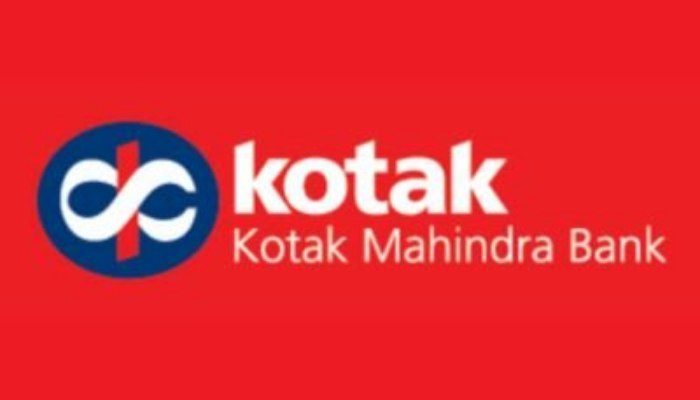Kotak Mahindra Credit Fund Secures Rs 1,200 Crore in Record First Close

Kotak Mahindra Asset Management Company has announced a record-breaking first close of Rs 1,200 crore ($141 million) for its new private credit fund.
Kotak Mahindra Asset Management’s debut credit fund raises Rs 1,200 crore in its first close, marking a record for India’s private credit sector.
Kotak Mahindra Asset Management Company has announced a record-breaking first close of Rs 1,200 crore ($141 million) for its new private credit fund, underscoring growing investor confidence in India’s alternative investment market.
The Kotak Credit Opportunities Fund, launched by Kotak Mahindra Asset Management Company (KMAMC), has reached 60 per cent of its Rs 2,000 crore ($235 million) target corpus in its maiden close, triggering its greenshoe option. According to the firm, this marks the largest first close ever achieved by a performing credit Alternative Investment Fund (AIF) in the Indian private credit industry.
The fund has attracted capital from a broad mix of investors, including high-net-worth individuals (HNIs), ultra-HNIs, family offices, corporate treasuries, and institutional investors. It is registered with the Securities and Exchange Board of India (SEBI) as a Category II AIF, a classification designed for funds that do not undertake leverage other than to meet day-to-day operational requirements.
Strategic Capital for Emerging Corporates
KMAMC said the fund aims to provide “solution capital” to emerging Indian businesses with credible financial histories and growth ambitions. Investments will target companies with established cash flows and robust business models, particularly those seeking to expand operations, enhance productivity, or consolidate through strategic initiatives.
Nilesh Shah, Managing Director of Kotak Mahindra AMC, said:
“We remain committed to supporting the capital needs of emerging Indian corporates through well-structured credit solutions. We believe in the enduring potential of private credit in India as an efficient financing alternative.”
“We remain committed to supporting the capital needs of emerging Indian corporates through well-structured credit solutions. We believe in the enduring potential of private credit in India as an efficient financing alternative.”
Saurabh Tripathi, Chief Investment Officer of Private Credit at KMAMC, added that there is increasing institutional interest in private credit, especially under SEBI’s AIF framework.
“The strong investor response reflects the growing acceptance of performing credit strategies,” he said. “The Kotak Credit Opportunities Fund is structured to align with the long-term goals of both borrowers and investors.”
“The strong investor response reflects the growing acceptance of performing credit strategies,” he said. “The Kotak Credit Opportunities Fund is structured to align with the long-term goals of both borrowers and investors.”
Fund Strategy and Market Context
Performing credit funds, such as this one, typically provide debt to businesses that are not distressed and have a clear repayment ability. Unlike traditional bank loans, private credit allows for more flexible structuring and quicker deployment—factors increasingly valued by medium-sized companies in India seeking growth capital without diluting ownership.
KMAMC has previously launched other funds under the Category II and III AIF segments, but the Kotak Credit Opportunities Fund is its first dedicated performing credit fund. The success of this first close is seen as a milestone for the firm’s broader ambitions in private credit, a segment that has expanded rapidly in recent years as traditional lending channels have tightened.
India's private credit market has been growing steadily, driven by demand from mid-market companies and a parallel surge in investor appetite for alternative fixed-income instruments. Global and domestic investors have turned to private credit as a means of achieving yield in a low-interest-rate environment, while companies view it as a viable funding avenue amid tighter regulatory norms in traditional banking.
Looking Ahead
The activation of the greenshoe option—an additional fundraising mechanism that allows the fund to accept more capital than originally planned—suggests sustained investor interest. The fund will continue to raise capital until it reaches its full target corpus of Rs 2,000 crore, with the possibility of further oversubscription depending on market response.
KMAMC, a wholly owned subsidiary of Kotak Mahindra Bank, is one of India’s leading asset managers. Its latest initiative is seen as part of a broader strategy to diversify its offerings and capture new opportunities in India’s evolving credit landscape.
As the country’s economy continues to recover from the disruptions of the COVID-19 pandemic and grapples with global uncertainties, flexible credit solutions are likely to play a key role in supporting business resilience and expansion.

Reliance Retail acquires Kelvinator, The Coolest One
Reliance Retail has purchased the Kelvinator brand from Electrolux for nearly ₹160 crore, aiming to strengthen its position in India's consumer durables market.
| 2025-07-19

Saiyyara has shattered every myth about launching newcomers. No big names, no big PR
Madhur Bhandarkar praises debut film 'Saiyaara' for its raw talent and storytelling, marking a shift in Bollywood's approach to newcomers.
| 2025-07-19

India slams reports blaming pilots for Air India crash
India's AAIB disputes US media assertions regarding Air India AI 171 crash, highlighting ongoing investigation and sensitivity towards victims' families.
| 2025-07-18

India Secures Four-Wicket Win in ODI Series Opener Against England
India achieves a four-wicket victory over England in the ODI series opener, led by Deepti Sharma's unbeaten 62 runs.
| 2025-07-17

Air India inspection claims no problems found with Boeing 787 fuel control switches
Air India has conducted thorough inspections of its Boeing 787 fuel control switches, reporting no problems following a DGCA directive.
| 2025-07-17




